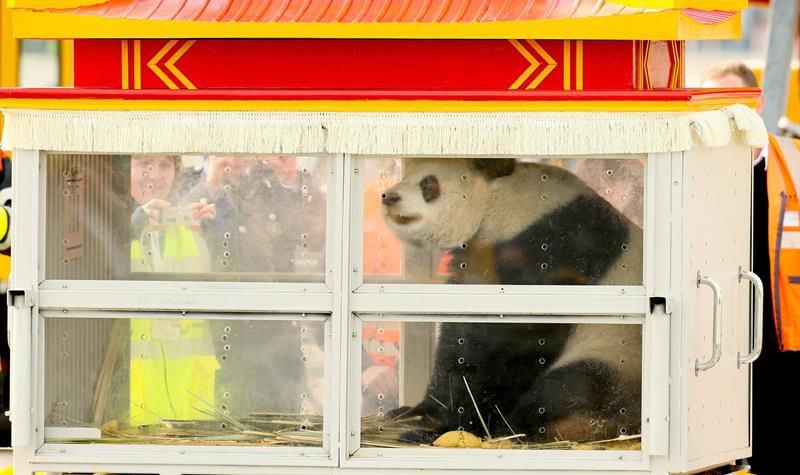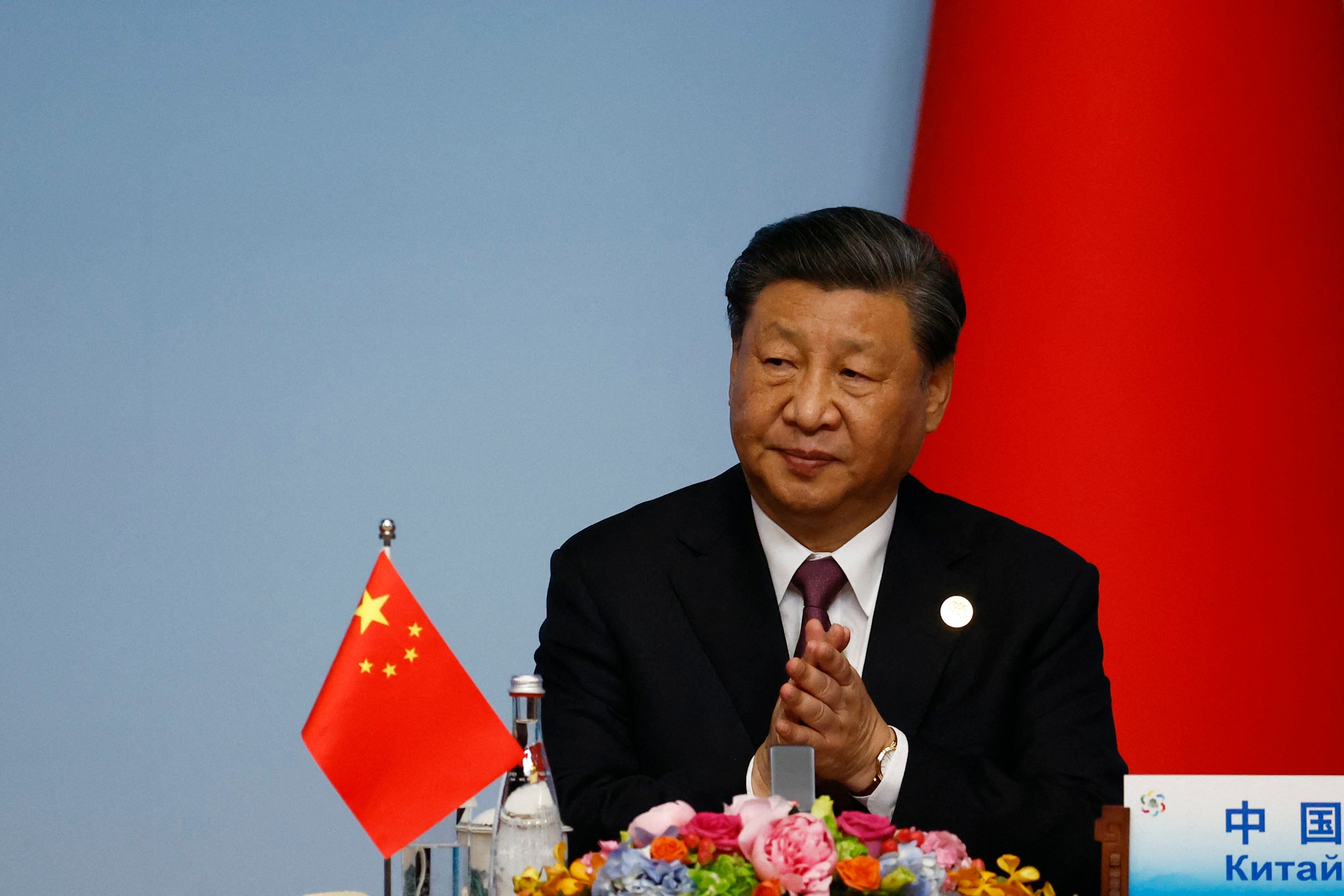The dragon is the most symbolic animal in China. Its legend represents the strength, energy and fire that emanates from an ancient culture. The other side of the coin is a tender, plump black and white bear, which rolls through the snow and placidly eats bamboo. The panda is China’s other symbol and, above all, its most precise diplomatic tool.
TO LOOK: The last Nazi hunter: “Even though they are 90 years old, they are still serial killers”
Panda diplomacy has been a successful “soft power” strategy exercised by Beijing since the Cold War years to strengthen ties with key countries through the delivery of these precious animals that until recently were in danger of extinction.
But this strategy is about to come to an end. With geopolitical tension reigning in the air, the last remaining pandas in the United States will soon return to China on a trip that, for now, seems pointless.
At the end of the year, Xiao Qi Ji, born in 2020, and his parents Mei Xiang and Tian Tian, who arrived in the country in 2000, will leave the Smithsonian National Zoo in Washington DC. The four bears still living at the Atlanta Zoo are scheduled to leave in 2024. In 2019, the pandas that were in San Diego had already returned and earlier this year the last one left in Memphis, Tennessee.
It was in 1984 that China decided to stop giving pandas and lend them to zoos in several countries, carefully chosen to strengthen geopolitical, economic and commercial relations.
Pairs of animals are given in exchange for one million dollars a year and if a bear is born in captivity, zoos must pay another 600 thousand dollars, as it is established that every panda born outside China belongs to China.
Normally, the loan contract is extended so that the animals continue to be the main attractions at zoos, but the dynamics are changing and Chinese authorities are letting the contracts expire and, for now, there is no sign of an extension.

“Pandas are one of China’s few soft power tools and it would be a shame if the contracts were not renewed. But it wouldn’t be strange for China to express its discomfort in this way in the climate of tension with the United States,” economist Carlos Aquino, coordinator of the Center for Asian Studies at the Universidad Nacional Mayor de San Marcos, told El Comercio.
“The Chinese are angry with the sanctions imposed by the Biden administration, with the restrictions on semiconductors and with the problems they now have in obtaining visas to the US. Therefore, it is very possible that they are trying to send a signal”, he explains. Dennis Wilder, a senior fellow at the US-China Dialogue Initiative at Georgetown University, told France 24. “They are not removing their pandas from Doha or Thailand, for example.”
According to data from the World Order portal, there are 68 pandas residing in zoos in 22 territories outside mainland China. In Europe there are 32 and in Asia 24, most of them countries that have important trade agreements with Beijing.
In addition to the United States, China is removing its bears from Great Britain and Australia, countries with which there are also disputes.

“We’ll see how far the Chinese annoyance goes”, adds Aquino, who recalls that the APEC summit will take place in San Francisco, in November, and in which President Xi Jinping is expected to participate. “If Xi doesn’t go, it will be a bad sign for relations with the United States. It is necessary to take into account that, despite the tension, Biden sent senior officials to Beijing, such as his Secretary of State, the Secretary of the Treasury and the person responsible for climate change. For the Chinese there is still no adequate environment because Washington continues to tighten the screws with sanctions,” he points out.
Meanwhile, the tender pandas return to China knowing that, perhaps in better times, they will be able to once again be ambassadors for the Asian giant.
Source: Elcomercio
I am Jack Morton and I work in 24 News Recorder. I mostly cover world news and I have also authored 24 news recorder. I find this work highly interesting and it allows me to keep up with current events happening around the world.

:quality(75)/cloudfront-us-east-1.images.arcpublishing.com/elcomercio/JOVQ26CL7VB7TNXXRGXWGDKW2A.jpg)



:quality(75)/cloudfront-us-east-1.images.arcpublishing.com/elcomercio/KSEOSAUPINFDLB6MHXDU2CHVPU.jpg)

